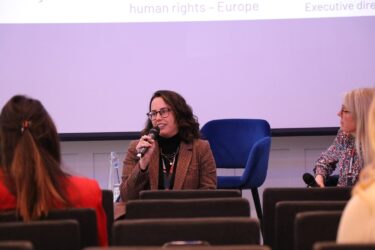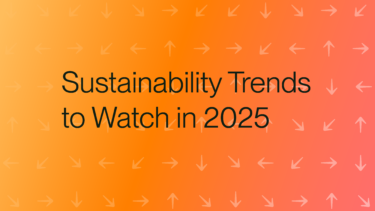
The Gulf region is a major destination for migrant workers. With foreign nationals making up a significant portion of the workforce, responsible recruitment is a priority issue for businesses operating in the region. Companies must navigate a landscape of legal, regulatory and operational challenges to ensure fair recruitment practices. This article explores the region’s positive developments, challenges workers face in the recruitment phase and how businesses can effectively manage recruitment practices to protect workers and their operations.
Migrant workers in the Gulf
The six GCC member states – the United Arab Emirates, Bahrain, Kuwait, Oman, Qatar and Saudi Arabia – are among the world’s largest immigration destinations. According to the Gulf Research Centre (GRC), a regional think tank, foreign nationals make up more than half of the Gulf’s population. The Gulf states rely heavily on migrant labour to support economic growth – for example, in the early 2020s, the Gulf Labour Markets, Migration, and Population Programme, a non-profit supported by the GRC, estimated that Qatar relied on non-nationals for over 90 percent of all employment in the country.
According to some estimates, there are approximately 30 million migrant workers in the GCC, many of whom are low-income workers active in the hospitality and construction sectors, among others. These individuals come from a variety of jurisdictions, though some of the largest sender countries include India, Pakistan, Nepal, Sri Lanka, Bangladesh and the Philippines.
These migration streams present a unique set of challenges for migrant workers and businesses operating in the region, including in relation to fair recruitment practices.
The International Labour Organisation (ILO), the United Nations agency responsible for setting international labour standards, defines fair recruitment practices as those that respect, protect and fulfil internationally recognised human rights.
According to the ILO, both governments and businesses are responsible for advancing fair recruitment and mitigating abusive practices against workers throughout their employment journey. The ILO recognises that unfair recruitment practices – such as the payment of recruitment fees and related costs which may result in debt bondage, as well as the retention of identity documents – are indicators of forced labour.
Progress in responsible recruitment across the Gulf
All GCC states have made efforts to address recruitment-related harms.
Since 2009, each of the six member countries have introduced labour law reforms aimed at providing additional protections for migrant workers while enhancing productivity in the private sector. Despite these state-led efforts representing important progress, their full potential has yet to be realised in terms of tangible outcomes for migrant workers.
A case in point is the Abu Dhabi Dialogue (ADD), a voluntary and non-binding inter-governmental consultative process between ten migrant-sending countries and the six GCC countries, as well as Malaysia. The ADD aims to improve the processes of safe, orderly and regular labour migration through multi-lateral dialogue, cooperation, implementation and reporting. Although some critics argue that the ADD is not yet used to its full potential, it is a step in the right direction.
Challenges for businesses and recruitment agencies in the Gulf – and beyond
Increasing regulatory requirements and international standards, such as the Corporate Sustainability Due Diligence Directive (CSDDD) and standards set by the ILO, place responsibility on businesses to prevent abusive or unfair recruitment practices within their operations and supply chains.
Businesses often contract with recruitment agencies overseas. While these stakeholders can expand opportunities for business growth and offer employment opportunities for workers, the lack of protective legislation and regulations in sending states, coupled with limited oversight and lack of transparency into agencies’ conduct and policies may exacerbate recruitment-related harms. These include:
- Recruitment fees and related costs: When securing a job through a recruitment agency in a sending country, jobseekers often must pay recruitment fees and related costs, such as medical, insurance, travel and administrative costs, to these agencies, which can amount to thousands of dollars. To pay these fees, workers may take out loans with high interest rates, sell personal property such as land or borrow money from family or friends, and are subsequently left in debt. ILO guidelines and laws in most GCC countries prohibit the charging of recruitment fees or related costs to workers or jobseekers.
- Wage theft: In cases where recruitment agencies pay for recruitment fees and related costs, employers often deduct these costs from workers’ monthly salaries. This can place workers in difficult financial situations with little income.
- Lack of transparency in contracts: Recruitment agencies in sending countries may present an offer letter or contract to jobseekers that may differ from the contract they receive upon arrival. Contracts may be substituted with less favourable terms, such as lower salaries or different responsibilities. These deceptive recruitment practices can trap workers in abusive conditions and are considered an indicator of forced labour by the ILO.
Mitigating recruitment-related risks
Businesses can take preventative action to mitigate against such recruitment-related harms by recruiting responsibly.
This begins with conducting rigorous Human Rights due diligence when screening potential recruitment agencies to ensure their practices align with local laws and international guidelines.
The following case studies highlight how we have helped businesses across the GCC region to address recruitment-related and worker welfare challenges with support from Anthesis:
- Recruitment Fee Investigation in the UAE:
In 2023, Reckitt, a multinational consumer goods company, sought to identify instances where migrant workers had paid recruitment fees at its site in the UAE. A detailed assessment was conducted to identify affected employees and calculate average recruitment fees by nationality, supporting the development of a repayment plan. The assessments aligned with the ILO general principles and operational guidelines for fair recruitment, as well as international best practices. This work was later included in Reckitt’s 2023 Modern Slavery and Human Trafficking Statement (see page 26: Reckitt MSS 2024). Our work for Reckitt was conducted as Wallbrook, now part of Anthesis Group. - Human Rights Impact Assessment for a UAE-based Industrial Company
In 2024, we were instructed by a major UAE state-owned industrial company to conduct a Human Rights Impact Assessment (HRIA) to evaluate risks within its local operations. Following our site visits in Dubai and Abu Dhabi, we evaluated the key risks based on our bespoke methodology and prepared a detailed HRIA including actionable recommendations. Based on our findings, we drafted the client’s first Modern Slavery Statement. - Human Rights Impact Assessment in Oman
An international metals company instructed us to evaluate worker welfare risks associated with the construction contractors of one of its business partners in Oman. We visited the construction site and accommodation in Oman and interviewed management, employees and subcontracted labour. We made recommendations to align the business partner’s management of risks in line with the 2023 Omani Labour Law. - Labour Risk Assessment in the Hospitality Sector
A global hotel chain carried out a labour risk assessment across six hotels in the UAE, Saudi Arabia, and Kuwait. The assessment involved site visits, engagement with over 300 workers in multiple languages including English, Arabic, Hindi, Urdu, and Malayalam, and training sessions for more than 200 department heads and human resources staff members on responsible labour practices. We analysed risks against internal labour standards, international best practices, and local legal requirements, resulting in actionable recommendations to improve worker welfare at both the hotel and corporate levels.
Does your business need support with responsible recruitment or human rights due diligence?
Conducting independent assessments and due diligence on recruitment and worker welfare risks – across your business, supply chains, and recruitment partners – helps proactively identify vulnerabilities, ensure compliance, and build a more ethical and resilient workforce.
Reach out to the Anthesis Human Rights team to see how we can help.




